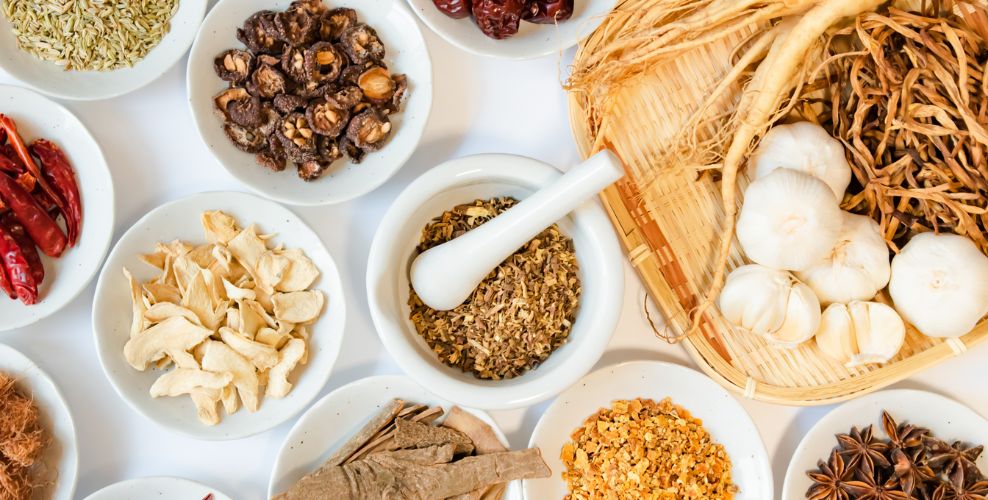Supporting your health this winter with traditional Chinese medicine (TCM)
When we study nature’s patterns and cycles, as it can help us learn how to support our own health and stay well all year long.

In Traditional Chinese Medicine (TCM), winter is considered a Yin season associated with the Water element. It is a time of rest, conservation, and introspection. TCM views winter as a time to nurture and support the Kidney and Bladder organs, which are associated with the Water element.
Winter Associations in TCM;
- Element: Water
- Yin organ: Kidneys
- Yan organ: Urinary bladder
- Emotion: Fear
- Spirit: Zhi (Willpower)
- Climate: Cold
- Colour: Black / dark blue
During the Winter months all things in nature wither, hide, return home, and enter a resting period, just as lakes and rives freeze and snow falls. This is a time when yin dominates yang. Therefore one should refrain from overusing the yang energy. Retire early and get up with the sunrise, which is later in Winter. Desires and mental activity should be kept quiet and subdued, as if keeping a happy secret. Stay warm, avoid the cold, and keep the skin covered. Avoid sweating. The theory of the Winter season is one of conservation and storage. Without such practice the result will be injury to the Kidney energy. This will cause weakness, shrinking of muscles, and coldness; then the body loses its ability to open and move about in the Spring.

During winter, it is believed that the energy, or Qi, moves inward and downward. It is a time to slow down, conserve energy, and engage in activities that promote rest and nourishment. Here are some key aspects of winter in TCM:
- Element: Water: Winter is associated with the Water element, which represents the Kidneys and Bladder. The Water element is related to the storage of energy, deep reserves, and the foundation of vitality.
- Emotion: Fear: In TCM, each season is associated with specific emotions, and fear is associated with winter. It is believed that balancing emotions during this time is important for maintaining overall well-being.
- Nourishing Yin: Winter is a time to nourish the Yin energy in the body. Yin represents the cooler, slower, and more inward aspects of our being. Consuming warming and nourishing foods is recommended during this time, such as soups, stews, and cooked grains. It is also a good time to practice gentle and restorative exercises, such as Tai Chi or Qi Gong, to support Yin energy.
- Rest and Conservation: Winter is a time for rest and rejuvenation. It is recommended to get plenty of sleep and allow the body to restore its energy. It is also a good time to engage in quiet and introspective activities, like meditation or reading.
- Stay Warm: Protecting the body from cold and keeping warm is essential during winter. According to TCM, exposure to cold temperatures can deplete the Yang energy in the body, which can lead to imbalances and health issues. Wearing warm clothing, especially covering the lower back and the feet, is advised.
- Balance the Kidneys: The Kidneys are considered the vital organs during winter. It is believed that they store our essence and provide the foundation for overall health and vitality. Eating foods that support Kidney health, such as black beans, walnuts, and seaweed, can be beneficial.
- Adaptogenic herbs: Strengthen the kidneys and adrenals, boost immunity, ease mild anxiety, and help the body adapt to stress. Holy basil, ashwaghanda, astragalus, oat straw, and rhodiola are herbs that can be taken daily as supplements or tea. It’s best to consult with a health care practitioner before adding supplements to your wellness regimen.
- Essential oils: Geranium, ylang ylang, jasmine, and basil can be used in a diffuser to strengthen the water element. The floral oils are mostly middle or base notes, resonating with the deeper layers of our selves. Floral oils nourish yin, lifts the spirit, and connects with our inner beauty and essence. Basil is used in blends for fatigue, focus, and memory.
- Internal work: Schedule more time to discover yourself through reflection. Meditation, yoga, journaling, dreamwork, and breathwork are great winter activities. These activities can also help to work through fear.
- Acupuncture meridians: Important acupuncture points along these channels are at the feet, knees, low back, and neck. These points are used to strengthen kidney and urinary bladder function, support immunity, and treat emotional imbalances of the water element. Keeping these areas warm and covered will maintain the integrity of the channels and keep you well physically, emotionally, and spiritually.
















